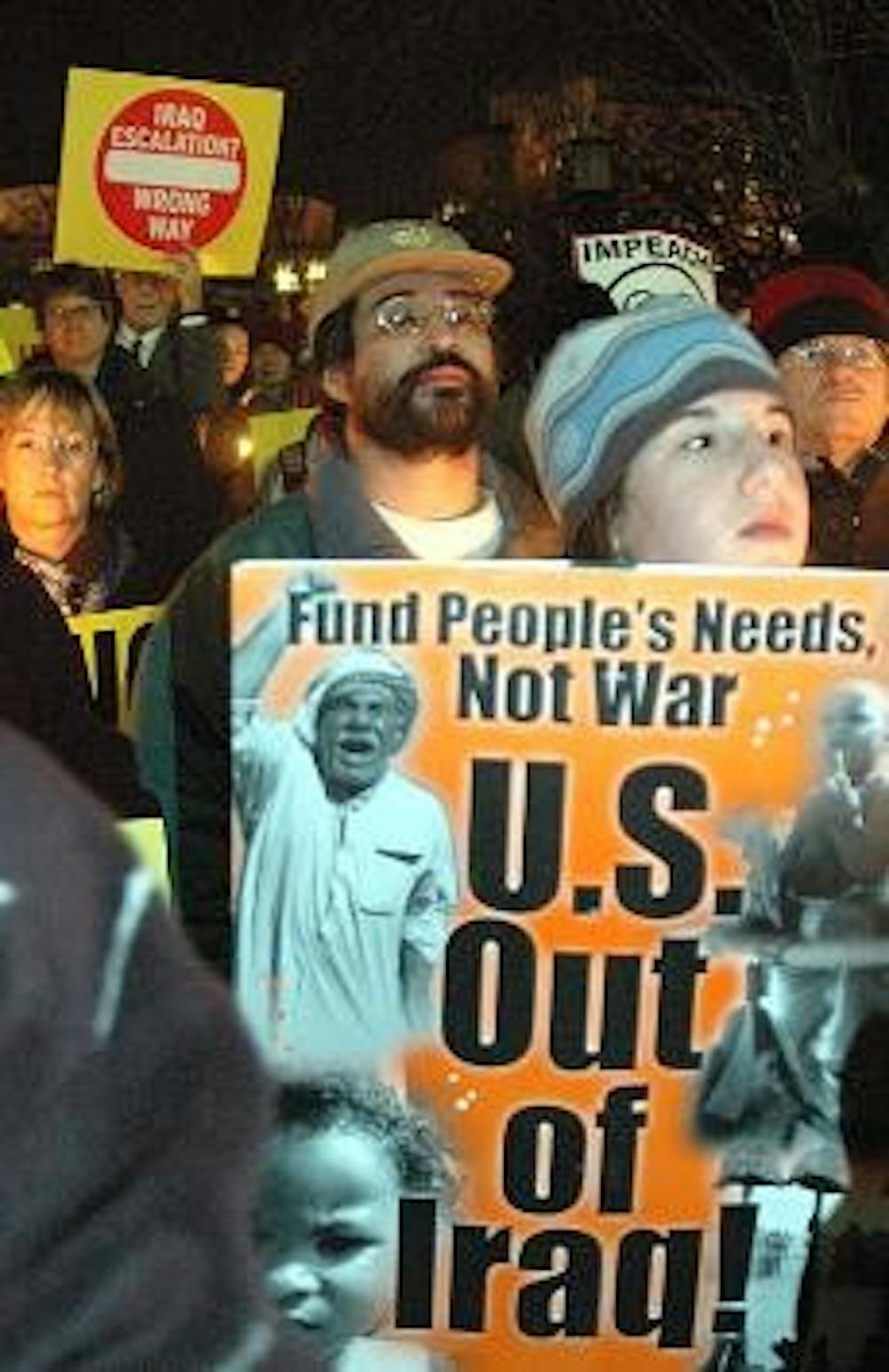AU professors and students have mixed reactions to President Bush's recent proposal to deploy 21,000 more troops to Iraq and allocate billions of dollars for Iraqi reconstruction projects.
Bush announced in his Jan. 10 address to the nation that he plans to double the number of troops in Baghdad by sending 16,000 more troops to the capital. He also plans on sending an additional 4,000 troops to Anbar Province, the "home base" of Al Qaeda, according to The New York Times.
Bush also announced that he plans to double the number of provincial reconstruction teams and plans to allocate $10 billion to assist in reconstruction projects, according to The Times.
Christopher Housenick, a U.S. Foreign Policy professor in the School of International Service who served in the U.S. Army from 1992 to 1996, said that given poor decision-making by the Bush administration throughout the war, Bush's proposal "is as reasonable as can be expected."
Bush's plan has faced opposition from Congress and the American public, who oppose the increase in troops and high death toll, wherein over 34,000 Iraqi civilians were killed in 2006 and over 3,000 U.S. soldiers have been killed since the conflict began, according to The Washington Post.
Housenick said Congress is currently drafting a bill saying that it does not approve of the proposal.
"Not funding the war is congressional suicide," Housenick said.
Congress is looking for loopholes in the plan where it may be able to influence the Bush administration, he said.
John Zevitas, president of AU's College Republicans and a junior in the School of Public Affairs, supports Bush's plan.
"I believe that this increased military deployment is the last straw for the Iraqi government," Zevitas said in an e-mail. "If they do not fulfill their commitment of troops and political support, then President Bush will order American troops to leave. This is not about an escalation of troops, but rather the commitment of the Iraqi government to protect its own people."
Seth Johnson, the College Republicans' secretary, a senior in SPA and former editorial page editor at The Eagle, also supports Bush's Iraq proposal. He said he believes Bush has looked at all of his options, including withdrawal, and listened to many advisors before making this new plan. He said in an e-mail that the soldiers will be used to "bolster our forces already there as well as Iraqi forces."
There was little debate among students about the American public's dissatisfaction with the current situation in the war in Iraq.
"The nation will likely continue to be displeased with the war still going on, but this is about killing the cancer threatening the young Iraqi government, not legacy building ahead of opening a presidential library," Johnson said.
Miriam Callahan, the College Democrats' vice president and a sophomore in the School of International Service, said she is not in support of the plan.
"With almost two-thirds of the American public wanting our military to leave Iraq, President Bush's plan to send even more troops seems ill-advised," Callahan said in an e-mail.
Callahan described the detrimental international ramifications of Bush's deployment plan.
"This deployment will cause our forces around the world to be stretched even thinner than they are already, making it difficult for the U.S. to respond to burgeoning international crises such as the war between Somalia and Ethiopia or Iran's nuclear ambitions," Callahan said.
However, Housenick said he is not as worried about the ramifications of an overstretched army.
"In the grand scheme of deployments, [this deployment] is rather small," he said.
Zevitas said there is no reasonable alternative to Bush's plan, calling it comprehensive in including militaristic as well as political and economic aspects.
Callahan suggested an alternative plan that has been proposed by Democrats in Congress.
She said the U.S. should withdraw troops from Iraq "while increasing aid to the Iraqis so they can train and equip their military and police forces to deal with sectarian violence."
"There are really no other real great options, but there are some less painful options," said Housenick.
Housenick said that the only viable alternative to Bush's plan would be to create a solo Iraqi army instead of the joint U.S. and Iraqi effort currently under way.
What are your thoughts on President Bush's proposed troop surge? Vote in today's poll on TheEagleOnline.com, or submit a letter or op-ed to editor@theeagleonline.com.





